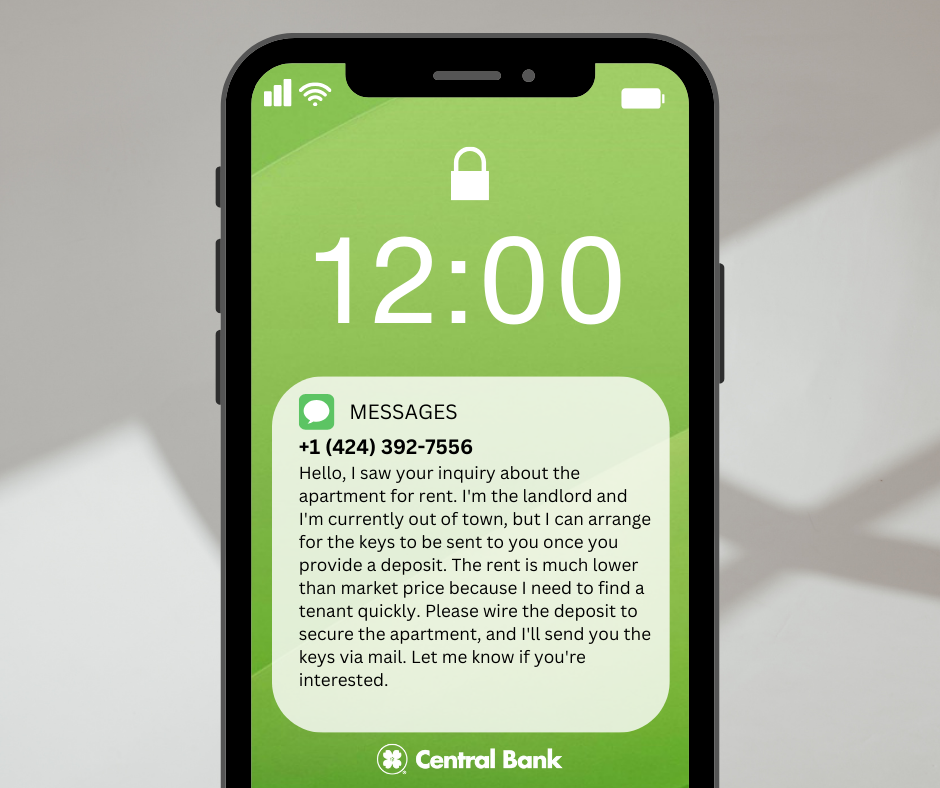
Searching "apartments near me" and think you have found what seems to be like the perfect off-campus living? Not so fast, this could be a scammer. Learn how you can identify rental listing scams before you make any payments.
How the Rental Listing Scam Works:
Did you know that scammers target students who are searching for off-campus housing? They might take real rental listings and change the contact information before reposting them on different rental websites. Then, they might ask you to pay fees, deposits, or rent for homes that aren't actually available to rent.
If a scammer texts you, they might say something like this: "Hello, I saw your inquiry about the apartment for rent. I'm the landlord and I'm currently out of town, but I can arrange for the keys to be sent to you once you provide a deposit. The rent is much lower than the market price because I need to find a tenant quickly. Please wire the deposit to secure the apartment, and I'll send you the keys via mail. Let me know if you're interested."

Here are some tips to avoid falling victim to rental listing scams:
Do Your Research
Look online for the management company's name along with words like "review," "complaint," or "scam." If you find negative reviews, consider looking elsewhere.
Verify Information
Call the number provided on the management company's official website, not the one listed in the rental ad, to confirm if the listing agent is legitimate. Check if the home's address matches the information on the company's website. If it doesn't, it might be a scam.
Try to Visit the Rental Property in Person
Check out the apartment yourself or ask a trusted friend to do so to ensure it matches the advertised description. If you can't visit in person, inquire with your school about other housing options. Be wary if the landlord demands payment before showing you the place; this is likely a scam.
Pay with a Credit Card
Pay with a credit card for added security. Scammers often insist on payment methods that make it difficult to recover your money, such as wire transfers, cash, cryptocurrency, or payment apps like CashApp, Venmo, or Zelle. Even if they claim the money is refundable, it's unlikely you'll ever see it again. Be cautious if the rental agent asks you to wire money for a security deposit.
If you come across a suspicious rental listing on a website, report it to the website's administrators or group moderators. Then, tell the FTC at ReportFraud.gov.